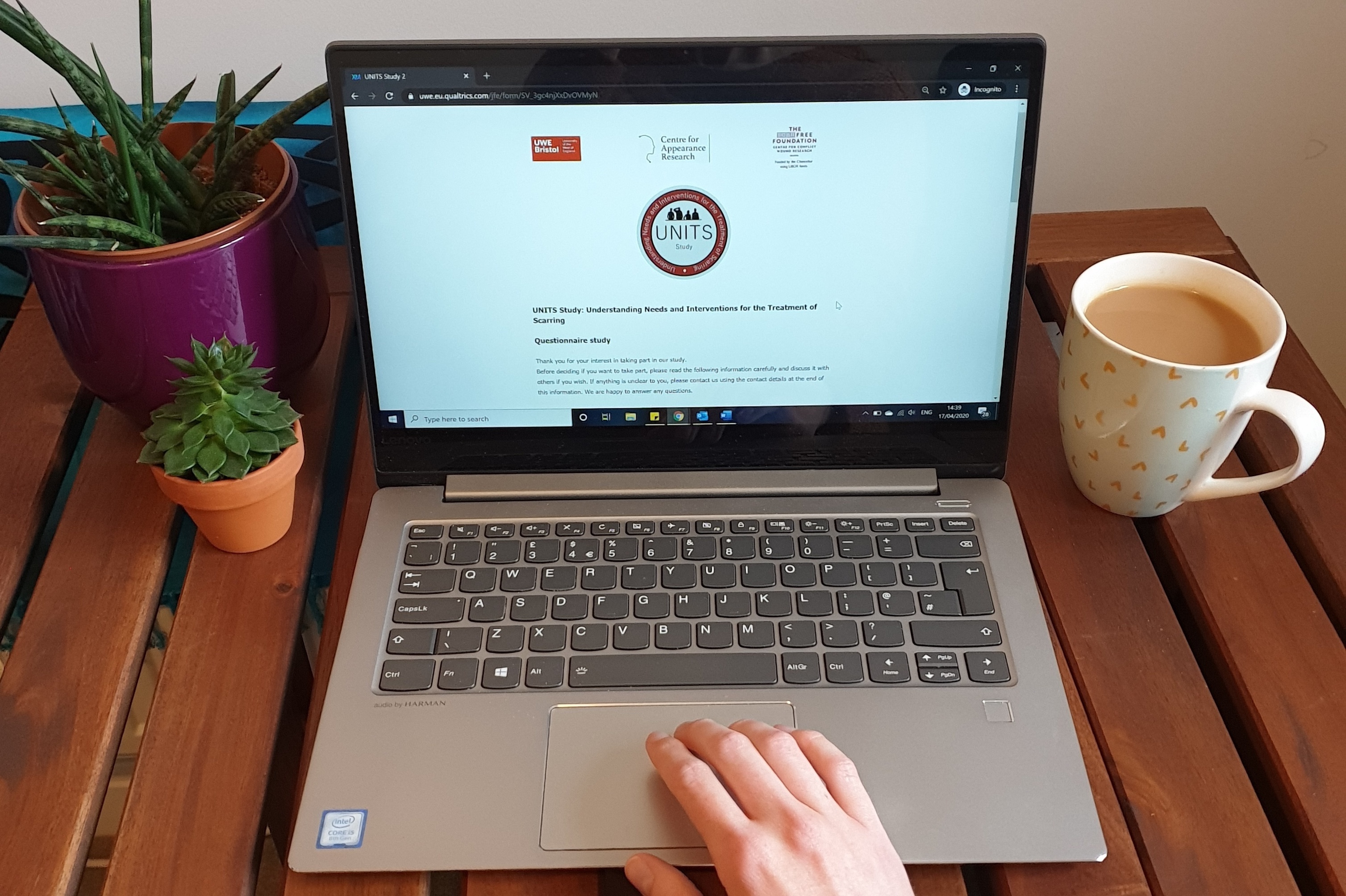Understanding Needs and Interventions for the Treatment of Scarring (UNITS) study is a three-year study exploring the experiences of military personnel and veterans who have sustained appearance-altering injuries during military operations or training since 1969, and their family members. The project sets out to understand the role of appearance and body image in their psychological wellbeing and to develop tailored support for those affected by appearance-altering injuries. The study includes a literature review, a series of interview studies, a questionnaire study and a final study to develop future support. Excitingly, the team have now officially published their literature review, (the study’s first published journal article) which lays an important foundation for research into the nature and prevalence of body image and psychosocial concerns among veterans with appearance-altering injuries.
The literature review is a vital part of the research process; providing researchers with the chance to understand all previous research completed on the topic, and to identify gaps in knowledge. Dr Mary Keeling, Senior Research Fellow for the project, comments “the literature review was conducted by searching academic databases for published research papers. This identified just four small studies about the appearance-related concerns of combat-injured military veterans. None of these papers were from a UK perspective, so the UNITS study is the first to examine this topic in the UK. The four papers provide evidence that combat injured veterans whose appearance has changed because of their injury (for example, because of burn injuries or loss of a limb) can experience psychological and social challenges such as depression, anxiety, and worries about being in social situations. However, certain things about the culture of the military might help them by building resilience.’
Professor Diana Harcourt, Director of the Centre for Appearance Research at the University of the West of England (Bristol) pointed to the significance of the review, telling us ‘The review highlights why the UNITS research programme is so important. The previous research in this area consisted of only small studies; we are carrying out a much bigger study which will mean we can have more confidence in the results and use this knowledge to guide the future provision of support for those affected. The limited research that has been carried out also indicates that veterans whose appearance has changed due to combat injuries may experience psychological distress, such as depression, anxiety and social anxiety, highlighting the importance of developing proper support”.
Having published the literature review, the team are now collecting data, after which they will begin their analysis which will inform plans for the provision of tailored support. To help the team develop this support, they are seeking physically injured veterans with scars and/or limb loss, or adults who have had an appearance-altering injury, to complete their online questionnaire. This data will be used to understand how the experiences between veterans and non-veterans are similar and different; helping them identify how to develop support specifically for veterans.
This is an important study, made possible by support from HM Treasury using LIBOR funds. The results of the literature review show how vital it is that more research is undertaken in this field. To keep in touch with the team’s progress, follow them on Twitter (@unitsstudy), Facebook (@unitsstudy) and Instagram (@unitsstudy). You can also play a vital role in the study. If you are a civilian with appearance-altering injuries, complete the questionnaire here: https://go.uwe.ac.uk/unitscivilian. If you are a veteran with scars and/or limb loss from military conflict, complete the questionnaire here: https://go.uwe.ac.uk/unitsveteran.

